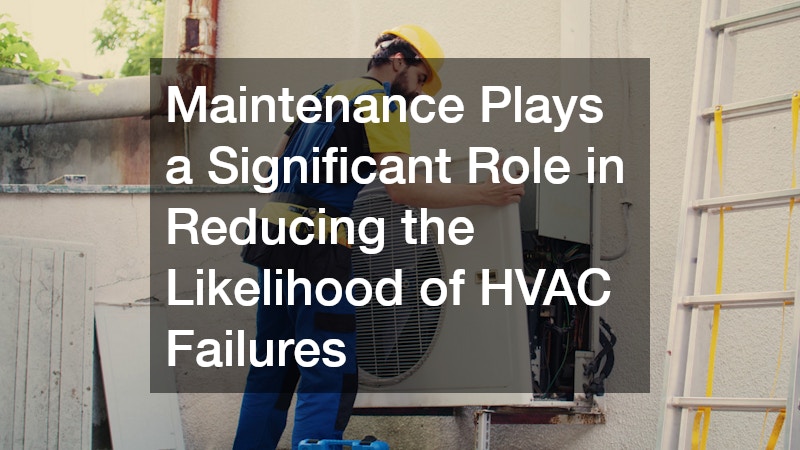Can HVAC Maintenance Help Prevent Costly Repairs?
Regular HVAC maintenance is crucial for ensuring the efficiency and longevity of your heating and cooling system. It’s easy to overlook routine checks, especially when everything seems to be functioning well. However, neglecting regular maintenance can lead to unexpected breakdowns and costly repairs in the long run.
Scheduling regular maintenance helps in identifying potential issues before they become significant problems. It includes tasks such as cleaning components, checking for leaks, and ensuring that the system is running at optimal performance.
Regular maintenance not only enhances the lifespan of your HVAC system but also improves its overall efficiency, thereby reducing energy consumption.
Many homeowners are unaware of the benefits of regular HVAC maintenance, often considering it an unnecessary expense. In contrast, routine check-ups are more cost-effective compared to the expense incurred from major repairs or system replacements. Ultimately, investing in regular maintenance serves as an insurance against unforeseen problems and facilitates smooth HVAC system operation throughout the year.
The Role of Maintenance in Preventing HVAC Repair
Preventive maintenance plays a significant role in reducing the likelihood of HVAC system failures. One of the main causes of HVAC repair is the buildup of dust and debris, leading to blockages and inefficiencies. Regular cleaning of filters and components prevents this buildup, ensuring the system operates smoothly.
Another critical aspect of maintenance is inspection for wear and tear of mechanical parts. Over time, fan belts can become loose, and motors may experience fatigue, leading to system failures if not addressed. Regular maintenance allows for timely replacement of worn-out parts, reducing the risk of unexpected breakdowns and costly repairs.
Additionally, checking refrigerant levels and calibrating the thermostat are part of standard maintenance procedures. Incorrect coolant levels or malfunctioning thermostats can severely affect the system’s efficiency and performance. Regular checks and adjustments are key components of preventive maintenance that help prevent the need for extensive HVAC repair.
Economic Benefits of Regular HVAC Maintenance
Regular HVAC maintenance offers substantial financial benefits in both short and long term. By maintaining your system properly, you ensure that it operates efficiently, which directly translates into lower energy bills. Efficient systems use less energy, which not only minimizes your carbon footprint but also saves you money.
Maintenance also reduces the frequency and severity of breakdowns, which can be costly to repair. For instance, a simple component replacement identified during routine maintenance can save you from facing expensive repair costs associated with more severe system failures. Over time, the savings gained from reduced repair costs and energy consumption far outweigh the initial cost of regular maintenance services.
Furthermore, a well-maintained HVAC system can increase the overall value of your home. Prospective buyers are often willing to pay more for properties with efficient and well-maintained heating and cooling systems. Consequently, regular maintenance not only keeps your HVAC repair costs in check but also contributes to higher property value.
Enhancing System Efficiency and Longevity
Regular HVAC maintenance is key to enhancing system efficiency and extending its lifespan. An efficiently running HVAC system heats or cools a space more effectively, providing improved comfort for occupants. Maintenance tasks such as replacing air filters and cleaning coils are essential to maintain optimal airflow and heat exchange.
By preventing strain on the components from dirt and blockages, maintenance reduces the likelihood of premature system failure. Regular servicing ensures that every part of the system is in good working condition, allowing it to run efficiently. This efficient operation reduces wear and tear, contributing to a longer system lifespan and fewer HVAC repair instances.
In addition to system longevity, maintenance also guarantees better indoor air quality. Clean systems are less likely to circulate dust, allergens, and pollutants, providing a healthier living environment. Thus, regular maintenance supports both system efficiency and occupant well-being, minimizing costs associated with potential HVAC repair and health issues.
Prioritizing Maintenance to Avoid Costly Repairs
Regular HVAC maintenance is essential for preventing costly repairs and ensuring the effective operation of your heating and cooling system. Neglecting routine checks can result in unexpected system failures and a rise in repair costs. However, a proactive approach to maintenance allows for early detection and correction of issues, minimizing the likelihood of expensive repairs.
The financial benefits of regular maintenance are substantial, with savings seen through reduced energy bills and repair costs. Moreover, a well-maintained HVAC system contributes to a higher property value, providing additional economic advantages. These benefits, alongside improved system efficiency and indoor air quality, highlight the importance of prioritizing HVAC maintenance.
Ultimately, investing in regular HVAC maintenance is a smart choice that pays off in the long run. By ensuring your system is in top-notch condition, you can enjoy a comfortable and cost-effective living environment. Regular maintenance not only minimizes HVAC repair needs but also maximizes the longevity and efficiency of your heating and cooling system.

